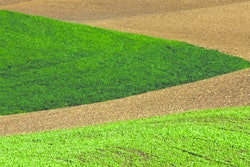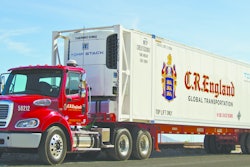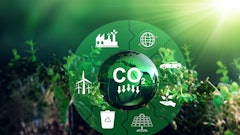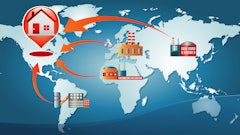The Global Salmon Initiative (GSI), along with World Wildlife Fund (WWF), the Food and Agricultural Organization (FAO) of the United Nations (UN) and Rabobank, announced at the Seafood Expo North America held in Boston last week that they will join together for the first time in the U.S. to demonstrate how the global farmed salmon industry is leading the way in changing current aquaculture business practices to ensure a sustainable future for the industry.
The US is the largest consumer by country of farmed salmon worldwide, consuming more than 282,000 tons in 2013. In fact, consumer demand for farmed salmon has increased by over 14 percent in the last 5 years in the U.S. alone, and is showing no signs of slowing down.
Global demand for salmon has increased even quicker, doubling in the last decade, and is set to double again by 2020.
GSI executives meeting in Boston with global sustainability leaders are today announcing their commitment to put sustainability before competition, in order to pursue a unique model of environmental cooperation as a driver for their industry’s success.
“It is extremely rare to see CEOs -- who are usually competing fiercely for market share -- joining together to address challenges around sustainability,” said Jason Clay, senior vice president of market transformation for WWF. “This type of bold, collective action in the farmed salmon sector is what’s needed across all food commodities if we ever hope to feed nine billion people while preserving biodiversity.”
During the seminar last week leaders from GSI and the expert panel reviewed the initial results of the GSI cooperation model, and discussed how industry collaboration can translate into industry improvements. In turn, providing a sustainable solution, both economically and environmentally, to the world’s growing demand for high protein foods.
At the forefront of change in the aquaculture industry, GSI was formed to help change current business practices and has focused on a model of environmental cooperation as a driver for industry success.
“The companies active in GSI recognize that sustainability is commercially sensible, and by making a public commitment to sustainable practices, they are helping to embed sustainability as a strategic driver of long-term success,” said Jeroen Leffelaar, Rabobank Global Animal Protein Co-head.
GSI has chosen three priority areas where it intends to translate the workings of the model into significant industry improvements. GSI’s specific priorities include:
Having all member companies certified by the Aquaculture Stewardship Council (ASC) Salmon Standard by 2020. To date, GSI members have had their first three farms certified – a testament to the success of this unique model.
Focusing on biosecurity – primarily sea lice and disease management – where member companies are using knowledge transfer as a means of generating improved management practices.
Working with industry partners to secure sustainable sources of feed to meet growing demand.
“As individual companies we can work as hard as we want at improving our operations to support sustainable growth, but due to the nature of our business we are inherently affected by the actions of neighbors and fellow companies,” said Jon Hindar, Co-chair of GSI and CEO of Cermaq. ”By focusing instead on cooperation and collaboration we are seeing that progress can be made on a much wider scale, and at a much quicker rate.”
To read more, click HERE.















